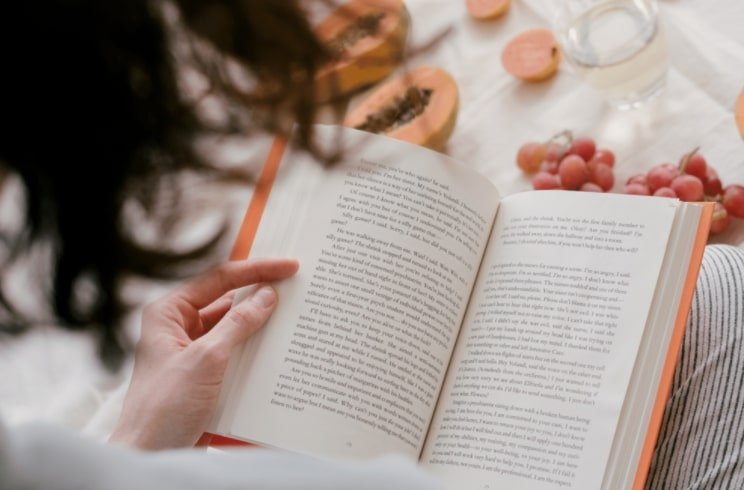
Free Resource Library
We have collated some great educational materials for all age levels and abilities. These range from 11 plus interview questions, to tried-and-tested revision tips for GCSE and A Level students, to blogs on extracurricular learning & Oxbridge entry. Explore the titles most relevant to you by searching by subject (e.g. Geography, Engineering, History of Art) or level (e.g. 11 Plus, GCSE, IB, Oxbridge, Degree) below.
Search by Category (11+, Subject, Oxbridge etc.)
- 11 Plus
- 13 Plus
- 16 Plus
- 7 & 8 Plus
- A-Level
- Admissions Tests
- Business School
- Degree Level
- Early Years (Ages 3-5)
- Extra Curricular Exploration
- GCSE
- General Subject Resources
- Homeschooling
- International Baccalaureate
- International Students
- KS1
- KS2
- Law School Applications
- Medical School Applications
- Oxbridge
- Personal Statement
- UK University Applications
- US & Ivy League
- University Interviews
Looking for in-person tutoring in Oxford?
U2 Tuition provides expert in-person tutoring in Oxford with Oxford university students and graduates. Our tutors offer personalised support in subjects like Maths and English, as well as specialided guidance for Oxford admissions and school applications. With a focus on immediate feedback and greater flexibility, our sessions help students succeed in their academic journey.
How to Get a 9 in History GCSE: Top Tips and Strategies
GCSE History is one of the most rewarding yet challenging subjects, requiring a mix of critical thinking, essay-writing finesse, and detailed knowledge. In this guide, we break down essential tips to help you achieve a Grade 9, including how to master your content, structure your essays effectively, and use past papers to sharpen your exam technique. Whether you're analysing historical sources or crafting well-argued essays, these strategies will help you impress your examiner and reach your full potential.
The Best Homeschool Curriculum: U2 Tuition's Comprehensive Guide to Homeschooling UK
Explore U2 Tuition’s guide to homeschooling in the UK, offering expert advice on creating the best homeschool curriculum for primary through A Level. Tailor your child’s education with flexible lesson plans, exam preparation tips, and personalised support. Our experienced tutors and consultants help you navigate homeschooling effectively, ensuring your child excels academically.
Songs of Ourselves Revision Guide: Improving Your Poetry Analysis
Mastering close analysis is key to acing your English GCSE poetry paper, especially when dealing with the "Songs of Ourselves" anthology. This comprehensive revision guide helps you improve your Songs of Ourselves analysis, offering insights into literary features, thematic connections, and structural elements. Packed with detailed notes, example questions, and practical tips, this guide will boost your confidence and ensure you're fully prepared for exam success.
Romeo and Juliet GCSE Revision: U2 Tuition’s Comprehensive Guide
Excel in your English Literature GCSE with U2 Tuition's comprehensive guide. Our expert Oxbridge English graduates provide essential Romeo and Juliet GCSE revision tips, character insights, theme summaries, and practical exam questions to boost your performance.
1984 GCSE Revision: U2 Tuition Revision Guide
Designed to help your 1984 GCSE revision, this 1984 GCSE revision guide is packed with useful information on key characters and themes, as well as explaining and simplifying some of the novel’s complex context. With practise questions and thinking tasks, this guide is designed to help you excel in your English Literature GCSE.
How to Revise for GCSE English
Excel in your GCSE English exams with our revision guide and gain the skills you need to achieve your best results. We’ll walk you through how to structure your GCSE English revision, how to create clear notes and tips for learning them by heart and acing exam technique.
How Private GCSE Tutors Can Help You Pass Your Exams
Struggling with GCSE preparation and revision? Discover how a private tutor can transform your study routine with personalised support, boost your confidence, and teach you smart study techniques to ace your exams.
How to Revise for GCSEs: Our Guide to Exam Success in 2025
One of our Oxbridge-educated tutors breaks down some tried-and-tested GCSE preparation methods to help you construct a GCSE revision timetable and understand how to prepare effectively for your individual needs.
How To Improve Your GCSEs
We know the pressure can be intense, so grab your highlighters, prep your playlists, and let’s look at some tried and tested strategies that will help you improve your GCSE performance and pave the way for success.
How To Get a 9 In English GCSE: A 2025 Revision Guide
Are you a high-performing student keen to know how to achieve the top grade at English GCSE? Our Oxbridge English Language and Literature graduate tutors will lead you through their key suggestions for students dreaming of 9s, including recommendations for wider reading and set text exploration, key skills and revision ideas.
3 Must-Read Books to Finish Before You Turn 16: Our Updated 2025 List
Time and again studies have shown that children who read more perform better in examinations in all subjects: reading improves your comprehension and analytical skills, your vocabulary, your written expression and your ability to connect ideas. These skills are invaluable across the board. With this in mind, have a look at this list of books to read before you turn sixteen; they are challenging, so don’t rush. However, enjoy them! Fiction promises to transport you to another time and place. It can provide solace, intrigue and wonder.
How to Survive and Thrive at Secondary School
In this guide we offer some guidance on how to do well in secondary, covering key skills like resilience and curiosity as well as more concrete tips and guidance to allow you to excel in your GCSEs and A Levels and become a life-long learner.
Our Guide to Improving your GCSE Poetry Analysis
Find out how to analyse the language and form of a poem, describe linguistic effect and understand how a poem functions, with Oxford English expert, Sarah. Sarah teaches you how to improve your GCSE poetry analysis so you can excel in your English Literature GCSE.
GCSE Creative Writing: How to Sculpt My Narrative Vision?
The true keys to GCSE creative writing are imagination, content, and organisation. Find out how to use advanced linguistic devices and structural features to develop and succeed in the creative writing exam. This blog will teach you to enjoy taking the reader on a journey, learn to navigate the realms of description and experiment with tone for GCSE creative writing success.
How To Write A Formal Letter (11+ to GCSE)
From 11 plus through to GCSE, students frequently find non-fiction writing more challenging to demonstrate their full written ability and hit assessment objectives than fiction. This is often because they are less exposed to non-fiction in reading and in writing tasks. Examinations for school entrance at 11+ and 13+ frequently assess students’ ability to write and respond to non-fiction: speeches, letters, reports, diaries, so it is crucial to address this. Georgia, full-time English teacher at Ibstock Place and 1st Class English Oxford Graduate, leads students through the ins and outs of formal letter writing.
The Importance of Preparation and Time Management
Whether it is an exam, a musical performance or sports competition, a lawsuit or a political campaign, success can be achieved with the right preparation. Preparation allows you to relax, thrive and be confident, as if you have prepared properly you will know that you are going to succeed. Keep reading to find out what effective strategies & online tools you can use to maximise success in examinations.
Our 2026 Guide to the Best Science Co-Curricular Activities
Oxford Medical student, Rhea, discusses the benefits of exploring the advancing, fascinating world of science, alongside and beyond the science curricular syllabus through a range of scientific journals, books and magazines.
Bridging the Gap: Moving on from Young Adult Fiction to Adult and Classical Novels: Our Guide to Reading
Many able kids continue to read young adult and teen fiction despite its simple level that doesn’t progress much despite the age range being 13-18. Rosie (Cambridge English student) gives book suggestions for teenagers that bridge the gap between YA and adult or classical novels. Check out her excellent recommendations categorised by genre, including fantastic dystopian, romance, coming-of-age and mystery novels.




















